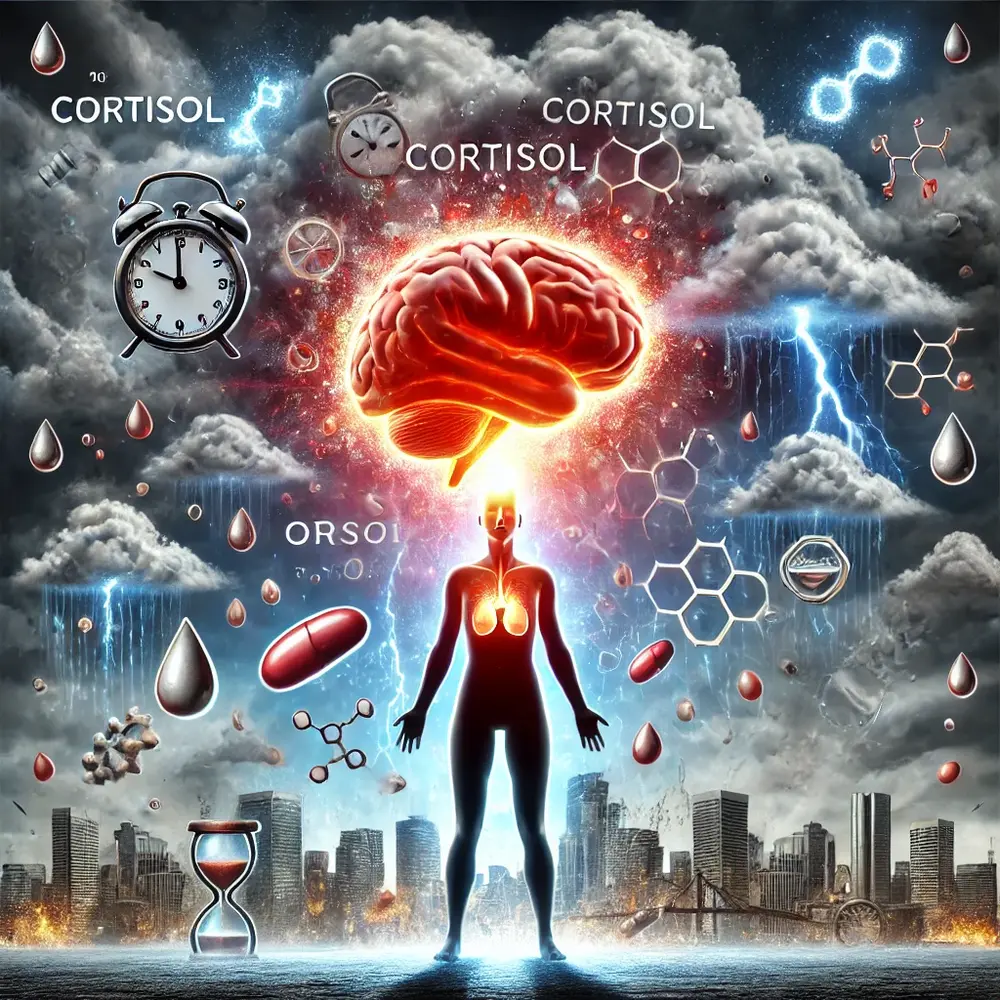INTRODUCTION: Hormones — The Silent Rulers
The human body is like an orchestra — each hormone plays its part, and when the balance is disturbed, the music becomes dissonant. But within this orchestra, there is an invisible dictator: cortisol. In the 21st century, where life moves fast and stress is normalized, cortisol is no longer just a “rescue hormone” — it has become a cause of deprivation.
So how did cortisol become a dictator? And how did the hormonal balance of the modern human collapse?
1. What Is Cortisol? The Hormone of Rescue or Ruin?
Cortisol is produced by the adrenal glands and plays a central role in the body’s stress response — mobilizing energy and protecting the organism from perceived threats. While a temporary increase in cortisol is helpful, chronically elevated levels can damage multiple systems:
-
Weakens the immune system
-
Raises blood pressure
-
Impairs memory
-
Leads to insomnia, depression, and obesity
That’s why cortisol is seen both as a savior and a harmful dictator.
2. Stress — The Silent Pandemic of Modern Life
Stress used to be a reaction to sudden threats — fight, flight, or freeze. But now, modern humans live in a constant state of battle: unread messages, work pressure, information overload, perfectionism, and social comparison. These conditions constantly send danger signals to the brain, resulting in daily and prolonged cortisol secretion.
This is no longer a purely physiological problem — it’s a socio-cultural issue.
3. The Dictatorship of Cortisol: Internal Overthrow
Cortisol’s prolonged rule triggers a chain of disruptions — like an internal coup within the body:
-
Increases liver and pancreas load → leads to insulin resistance
-
Decreases serotonin and dopamine → causes low mood and lack of motivation
-
Lowers testosterone and estrogen → results in low libido and reproductive issues
-
Weakens thyroid hormones → slows down metabolism
-
Damages the hippocampus → reduces memory and learning abilities
Cortisol becomes more than a leader — it centralizes the entire hormonal system under an authoritarian regime.
4. Insomnia and Cortisol: Two Nightmares That Feed Each Other
Studies show that sleep disturbances raise cortisol, and elevated cortisol in turn disrupts sleep — forming a toxic cycle.
Light pollution, social media usage, evening coffee, and irregular routines keep cortisol levels high from morning to night.
As a result, the modern person becomes:
irritable in the morning,
exhausted by midday,
tense in the evening — which kills sleep quality.
5. What Happens When Hormonal Balance Breaks Down?
The dictatorship of cortisol causes not only medical consequences, but also social and psychological deterioration:
-
Increased emotional sensitivity in relationships
-
Decreased motivation at work
-
Feelings of worthlessness and burnout syndrome
-
Behavioral issues in children and adolescents
Thus, hormonal imbalance — especially cortisol dominance — threatens both the emotional and functional health of society.
6. Is There a Way Out? A Strategy to Resist Cortisol's Dictatorship
Yes — cortisol can be tamed. But this requires action at both individual and societal levels.
Personal steps:
-
Get morning sunlight exposure
-
Limit screen time in the evenings
-
Practice short meditation, breathing exercises, or evening walks
-
Regulate caffeine consumption
-
Eat foods rich in protein and healthy fats
-
Stick to a consistent sleep schedule
Societal measures:
-
Promote balanced work schedules
-
Teach stress management in schools
-
Design cities with more green and calm areas
-
Encourage media outlets to reduce “breaking news” overload
CONCLUSION: Is Hormonal Freedom Possible?
Cortisol is a signaling molecule, not a curse. It must not be condemned — it must be understood. The intensity of modern life turned this hormone into a dictator, but freedom from this rule is possible.
Balanced living, conscious behavior, and reconnecting with nature are the keys to hormonal liberation.
Remember: happiness is hormonal harmony.

